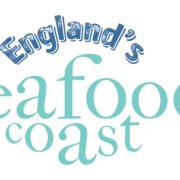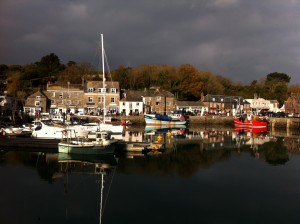 Top tips to get your holiday let website in great shape for the New Year
Top tips to get your holiday let website in great shape for the New Year
With the busiest months now behind us are you ready for a January rush of bookings? Here’re some helpful tips to make sure that your website is doing your holiday home and destination justice.
Is all of your website content up to date?
Now is an opportune time to review your holiday let website. Make sure it’s up to date and saying everything you need it to.
- Do you have all of your unique selling points covered?
- Have any new additions to your holiday home been mentioned and promoted?
- Are you using bullet points to quickly highlight what your visitors will be getting?
Learn from what’s working well
If you have Google Analytics, consider looking at which are your most popular pages.
- Why are they the most popular?
- Do they give you an insight into what people are looking for when visiting your website and property?
- Do they give you ideas for building upon the current information with even more?
Promoting your destination
Remember that up to date content doesn’t stop with your holiday home. Your visitors are likely to spend a good deal of their time away from your cottage.
- Do you have up to date information on where they could be spending their time?
- Have you spoken with local attractions to gain a link as a local accommodation provider?
- Have you got information on season opening times?
- Is there information on how long it takes to get there and how easy it is to find?
- The more information you have on the local area the more likely a visitor will be attracted to stay.
Make a content plan and consider scheduling your activity
Whilst fresh, relevant content is becoming increasingly important to Google, the problem for most holiday homeowners is finding time to create it.
During the summer months, when every minute is precious and often fraught with activity, time is not often available to be penning regular blog posts.
Take the time you have in the winter to put a plan in place and to create some great content for your website visitors.
Most content management systems such as WordPress will allow you to schedule when this goes onto your website, leaving you with fresh content all year round, without having to spend all year writing and publishing it.
Update your photography and make sure it does you justice
If a picture speaks a thousand words, are the photos on your website telling the right story about your holiday cottage?
Remember that when someone is visiting your holiday home they want to have the best possible impression of where it is they’re staying. Out of date, old or poor photography can leave your marketing in tatters so ensure that the latest and best available to you are on display.
Use the visitor book to your advantage
Many holiday homes will have a guest book where visitors can leave comments. Increasingly owners encourage those staying to leave reviews on popular websites such as Tripadvisor and Google.
Do your guests shout about how great your holiday home is? Then ensure these testimonials are prominently displayed across your website. Ensure that they are also up to date!
Is your holiday let website up to speed with current technology?
The average life cycle of a business website is said to be three to four years and you can see why; fourteen years ago, the world hadn’t heard of an iPad! 65% of adults in the UK now own a tablet and 98% have a smart phone.
It’s essential that your website not only keeps up to date with technology but also with other holiday homes. If others are taking advantage of the 74% of UK internet traffic that now comes from smart phones, should you be too?
Update your holiday let website Copyright
With the dawn of 2024 will come a new copyright number to be displayed on your website. Often forgotten, this small number at the bottom of most sites will need to be updated from 2023 to 2024. This sends a small signal to the search engines like Google that your site kept up to date.
Boshers offer specialist holiday home insurance to owners across the UK. For information on how specialist insurance can help protect your holiday home, call us on 01237 429444.

 Top tips to get your holiday let website in great shape for the New Year
Top tips to get your holiday let website in great shape for the New Year
 Social media has changed the way in which many of us find and book our holidays; more and more potential paying guests are now finding their
Social media has changed the way in which many of us find and book our holidays; more and more potential paying guests are now finding their 
 Whilst many
Whilst many 
 If we said “seafood”, where would you think of? A new initiative (England’s Seafood Coast) has been launched by Mitch Tonks, Visit Devon, and the Torbay Culture Board. It aims to position ‘Torbay’ and ‘South Devon’ at the heart of Britain’s seafood culture.
If we said “seafood”, where would you think of? A new initiative (England’s Seafood Coast) has been launched by Mitch Tonks, Visit Devon, and the Torbay Culture Board. It aims to position ‘Torbay’ and ‘South Devon’ at the heart of Britain’s seafood culture.
 For a long time now we’ve been told that content is king; not only does Google love it, potential guests enjoy reading it and engaging with what you’re sharing in your
For a long time now we’ve been told that content is king; not only does Google love it, potential guests enjoy reading it and engaging with what you’re sharing in your 
 So the clocks have gone back; the nights are certainly a little darker, as are the mornings, and the mercury in the thermometer has noticeably dropped. It may seem strange that now is an opportune time to be targeting one of the fastest growing areas in the tourism industry; the winter booking. We take a look at opportunities for increased bookings by marketing your holiday cottage during the winter months.
So the clocks have gone back; the nights are certainly a little darker, as are the mornings, and the mercury in the thermometer has noticeably dropped. It may seem strange that now is an opportune time to be targeting one of the fastest growing areas in the tourism industry; the winter booking. We take a look at opportunities for increased bookings by marketing your holiday cottage during the winter months.
 When someone stays at your holiday home and has a great time you want them to return again and again, but with potentially up to a year before they enjoy their next trip, how do you drive repeat
When someone stays at your holiday home and has a great time you want them to return again and again, but with potentially up to a year before they enjoy their next trip, how do you drive repeat 
 When the romantic and swashbuckling television costume drama Poldark returned to our screens not many of the millions of viewers would have been thinking about a 65% spike in visits to the local tourism website, the largest since Cornish sailor Ben Ainsley made his way through the Duchy clasping the Olympic torch a little over three years ago.
When the romantic and swashbuckling television costume drama Poldark returned to our screens not many of the millions of viewers would have been thinking about a 65% spike in visits to the local tourism website, the largest since Cornish sailor Ben Ainsley made his way through the Duchy clasping the Olympic torch a little over three years ago.
 The online world never stands still; here’s our top ten digital trends and tips to increase holiday let bookings to help your holiday home business stay ahead of the game in 2015.
The online world never stands still; here’s our top ten digital trends and tips to increase holiday let bookings to help your holiday home business stay ahead of the game in 2015.